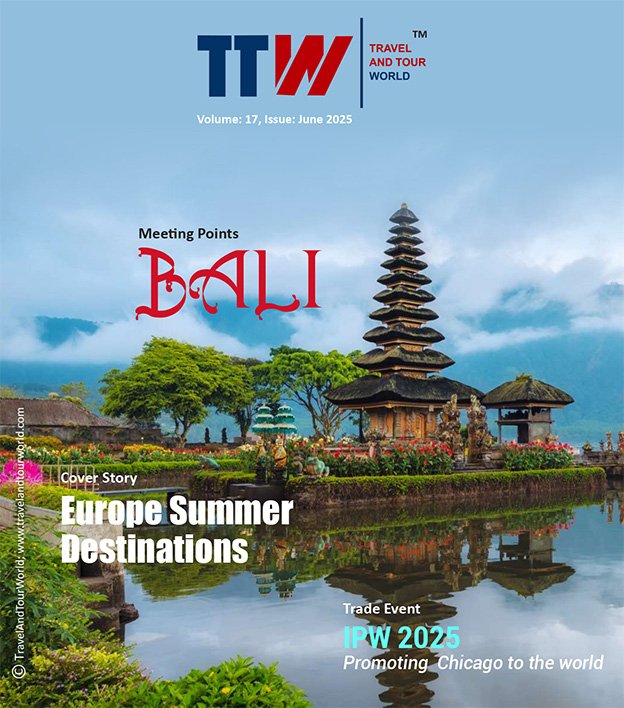Funding & Investment in Travel
startup funding challenges – Travel And Tour World

startup funding challenges
Copyright © Travel And Tour World – All Rights Reserved
Funding & Investment in Travel
The New Shape Of AI Acquisitions

In late May, OpenAI quietly announced its $6.5 billion acquisition of Io, a little-known but highly technical company focused on model deployment and orchestration. This deal was interesting not because of the size of the deal. It was what the deal revealed.
The most aggressive buyers in AI are no longer chasing novelty. They are chasing infrastructure. As AI shifts from lab to production, the real battle is not about building models. It is about running them at scale — reliably and securely.
Volume is up, but value is polarized
Across the three half-year periods from H1 2024 to H1 2025, AI M&A volume climbed steadily, reaching 262 deals in the most recent half, Crunchbase data shows. That marks a 35% increase year over year.
On the surface, it looks like a market firing on all cylinders. But the data tells a more nuanced story. The median deal size stayed flat at $67.5 million, while the average soared past $435 million, per Crunchbase data.
That spread is significant. It reflects a bifurcated market. On one end, a small number of strategic infrastructure plays are driving billion-dollar outcomes. On the other, a long tail of smaller, often modest acquisitions is quietly taking place at a steady pace.
That long tail deserves more attention.
These companies tend to be less heavily funded, more capital efficient and focused on solving very specific business needs. Their exits may not make headlines, but they create tangible value for acquirers who need domain expertise, internal automation or edge-case capabilities.
These are disciplined businesses built for sustainability, not spectacle. In many cases, their modest M&A outcomes are not a reflection of failure but a sign of good market fit.
Beyond Big Tech: Strategic buyers step in
While companies such as Nvidia and OpenAI continue to lead in both frequency and deal value, a different class of acquirer is emerging. Mastercard, ServiceNow, Accenture and a growing roster of vertical SaaS players have stepped into the M&A market with strategic intent.
These buyers are not looking for demos or experiments. They are seeking AI that can be embedded, deployed and commercialized inside industries that demand performance and reliability. In sectors like healthcare, legal, financial services and compliance, the startups getting acquired are not pitching bold visions.
They are delivering operational results, often in regulated or high-stakes environments. That makes them highly valuable, even if they fly under the radar.
From novelty to necessity
What we are seeing now is not a trend. It is a reset. AI has matured from a futuristic edge into a commercial foundation. M&A activity reflects that shift.
The startups commanding the most interest are not those with the most powerful models or the flashiest interfaces. They are the ones solving persistent, expensive problems in a way that integrates cleanly into existing systems.
For founders, the lesson is increasingly clear. The real question is not how impressive the tech is. It is how difficult the company would be to replace. Whether the focus is on infrastructure, domain-specific automation or a narrow but mission-critical workflow, the market is rewarding precision and purpose.
These are the quiet wins that will define the next phase of AI.
Itay Sagie is a strategic adviser to tech companies and investors, specializing in strategy, growth and M&A, a guest contributor to Crunchbase News, and a seasoned lecturer. Learn more about his advisory services, lectures and courses at SagieCapital.com. Connect with him on LinkedIn for further insights and discussions.
Related Crunchbase query:
Stay up to date with recent funding rounds, acquisitions, and more with the
Crunchbase Daily.
Funding & Investment in Travel
Ramp Ramps Up While AI And Healthcare Hold Strong

Want to keep track of the largest startup funding deals in 2025 with our curated list of $100 million-plus venture deals to U.S.-based companies? Check out The Crunchbase Megadeals Board.
This is a weekly feature that runs down the week’s top 10 announced funding rounds in the U.S. Check out last week’s biggest funding rounds here.
This was a big week for big checks, both confirmed and reported. Among confirmed rounds, the largest financing went to fintech provider Ramp, which landed $500 million at a $22.5 billion valuation to scale its visions around agentic AI. The next-largest financings went to MapLight Therapeutics, a developer of medicines for brain disorders, and Ambience Healthcare, a healthcare AI startup.
As for giant deals that were reported but not officially closed, Anthropric was said to be close to finalizing a round of up to $5 billion led by Iconiq Capital that would push its valuation all the way to $170 billion.
1. Ramp, $500M, fintech: New York-based Ramp, a provider of financial products and tools for businesses to automate finance tasks, raised $500 million at a $22.5 billion valuation. Iconiq Capital led the Series E financing, which brings total equity funding to date to $1.9 billion.
2. MapLight Therapeutics, $372.5M, biopharma and neuroscience: MapLight Therapeutics, a biopharma startup developing medicines for brain disorders, announced that it raised $372.5 million in Series D funding. Forbion and Goldman Sachs Alternatives co-led the financing for the 7-year-old, Redwood City, California-based company.
3. Ambience Healthcare, $243M, healthcare AI: Ambience Healthcare, an AI platform for healthcare systems to use in documentation, coding and clinical documentation, raised $243 million in a Series C round. Oak HC/FT and Andreessen Horowitz led the financing for the San Francisco-based company.
4. Quince, $200M, fashion: Quince, an affordable luxury brand online retailer, raised $200 million at a valuation of more than $4.5 billion, according to a report from Bloomberg. Iconiq Capital reportedly led the San Francisco-based company’s latest financing.
5. Observe, $156M, AI enterprise software: San Mateo, California-based Observe, a provider of AI-enabled observability tools for businesses, raised $156 million in a Series C funding round led by Sutter Hill Ventures. The financing brings funding to date for the 8-year-old company to more than $460 million, per Crunchbase data.
6. (tied) Motive, $150M, fleet management: San Francisco-based Motive, a provider of fleet tracking and driver safety software, raised $150 million in a new funding round led by Kleiner Perkins. The 12-year-old company is also reportedly taking steps toward an IPO.
6. (tied) Anaconda, $150M, AI software: Anaconda, a provider of AI tools for businesses using Python and open source applications, announced it raised over $150 million in a Series C funding round led by Insight Partners. The Austin, Texas-based company said it currently operates profitably with over $150 million in annual recurring revenue as of July.
8. Artbio, $132M, radiopharmaceuticals: Cambridge, Massachusetts-based Artbio, a clinical-stage radiopharmaceutical startup developing therapies (ARTs) to treat a range of cancers, raised $132 million in a Series B round that included Sofinnova Investments and B Capital as lead investors.
9. Fal, $125M, generative media: San Francisco-based Fal, a startup offering a generative image, video and audio platform for developers, raised $125 million in a Series C led by Meritech Capital Partners. The 4-year-old company said it has seen revenue increase 60x in the past 12 months.
10. Oxide Computer Co., $100M, cloud infrastructure: Oxide Computer Co., a developer of cloud infrastructure for on-premises computing, raised $100 million in a Series B round led by US Innovativr Technology. Founded in 2019, the Emeryville, California-based company has raised over $260 million to date, per Crunchbase data.
Methodology
We tracked the largest announced rounds in the Crunchbase database that were raised by U.S.-based companies for the seven-day period of July 26-Aug. 1. Although most announced rounds are represented in the database, there could be a small time lag as some rounds are reported late in the week.
Illustration: Dom Guzman
Stay up to date with recent funding rounds, acquisitions, and more with the
Crunchbase Daily.
Funding & Investment in Travel
Why More Startups Are Buying Other Startups In 2025

Despite a pickup in IPOs, startup exits and funding are still harder to come by than in years past. Add to that an increasingly competitive landscape for AI startups, and it’s no surprise that we’ve seen an upturn in startups buying other startups this year.
The reasons for the rise in startups buying their brethren are varied. In many cases, consolidation is driven by market forces, including a more challenging fundraising environment and more affordable valuations for buyers. For other startups, it’s simply faster to buy another company than try to build out certain technologies themselves.
By the numbers
In the first half of 2025, there were 427 reported M&A deals globally, according to Crunchbase data. That compares to 362 in the same period last year, representing an 18% increase.
For comparison’s sake, in the full years 2021 and 2022, there were more than 1,000 deals in which startups bought other startups, per Crunchbase data.
Buyer’s market
Michael Mufson, managing partner of investment banking firm Mufson Howe Hunter, believes that we’re seeing more early-stage startups combining forces because the fundraising environment “has become so challenging.”
“Venture capital is still tight, and without enough liquidity events to cycle capital back to LPs, VCs are being far more selective,” he told Crunchbase News. “For founders, it’s survival of the fittest — and that means getting creative to build a very tight investment thesis.”
In many cases, a merger between two early-stage companies can create a stronger, more compelling narrative for investors, in Mufson’s view.
“It may broaden the customer base, consolidate IP, or, increasingly, bring in critical capabilities like AI,” he added. “For startups lacking in AI expertise, acquiring or merging with a team that has that technical depth can help accelerate product development and improve funding prospects in a highly competitive market.”
Startup adviser Itay Sagie, owner of Israel-based Sagie Capital Advisors, agrees that the most significant driver of the startup-to-startup M&A uptick is the tightening of venture funding — despite a modest bump in venture funding globally in Q2.
“Small scale, startups which are far from being profitable have a hard time raising capital as VCs become more conservative, so they see M&A as the most logical option,” he told Crunchbase News in an email interview.
Another driver, Sagie believes, is that valuations appear to be “stabilizing at reasonable ARR multiplier ranges.”
This allows for larger startups that raised large rounds in 2021 at 40x-70x ARR valuations to use cash reserves to acquire smaller startups at reasonable valuations.
“So rather than facing a down round, they’re deploying that capital toward acquiring startups, especially ones that offer one of the three “Ts: complementary tech, traction, or talent,” Sagie added.
On the other side of the spectrum, the larger startups who are more financially sustainable with impressive unit economics and growth KPIs are even more attractive as startup buyers, in Sagie’s view, “as their equity is a more valid asset versus an overpriced, cash burning unicorn.”
Purchases include larger deals
Some of the deals this year have also been high-dollar transactions. And unsurprisingly, some of the larger deals involved AI companies.
- Specifically in the AI arena, one of the buzziest M&A transactions was OpenAI’s May purchase of Io, the device startup co-founded by famed Apple product designer Jony Ive, for a reported $6.5 billion.
- OpenAI also tried to purchase artificial intelligence-assisted coding tool Windsurf for $3 billion but that deal fell through. Instead, Cognition swept in to scoop up what was left of Windsurf after Google announced in mid-July that it was paying $2.4 billion to license Windsurf’s technology and for compensation.
Not all large M&A deals involved AI companies. Other notable startup purchases of peers this year include:
- Prime brokerage Hidden Road was acquired by crypto payments company Ripple in a $1.25 billion transaction announced in early April;
- In mid-May, Databricks announced its plans to acquire database management platform Neon in a deal reportedly valued at around $1 billion;
- More recently, cybersecurity unicorn Axonious announced it was purchasing Cynerio, a medical device security startup in a deal valued at just over $100 million; and
- On July 1, Canada-based legal software company Clio said it plans to acquire Spain’s vLex from Oakley Capital for $1 billion.
Also, many of the major acquirers raised large rounds before making their buys — with OpenAI in early April announcing a staggering $40 billion investment led by SoftBank. That deal marked the biggest venture investment ever. Last December, Databricks raised $10 billion at a $62 billion valuation, marking one of the largest venture capital raises of 2024 and one of the largest on record.
Asset purchases and acquihires
Lindsey S. Mignano, co-founder of SSM Law, notes an interesting trend she’s seeing: more asset acquisitions plus acquihires. This is where larger technology companies are buying the assets (think IP portfolio) of an early-stage company and taking one to three people from the founding team to integrate the technology and transition customer relationships.
SSM Law generally represents tech startups being acquired by larger, more established startups who have received more venture capital financing. An example of this would be an AI company that received a seed or Series A funding being acquired by a Series C or D company.
“The seller’s motivation to sell is often economic or market related — i.e., this company could not raise another round of venture capital or simply saw the writing on the wall that a big tech company was going to surpass them on ‘go-to-market’ due to strategic acquisitions or consolidations,” she told Crunchbase News in an interview.
The buyer’s motivation to buy is likewise economic, Mignano notes. It’s typically cheaper to buy the technology than build it, and cheaper “to buy the team with a six-month golden handcuff earnout than recruiting.”
But it’s also based on a rush to market, most particularly in the extremely competitive AI field.
“For AI companies, the buyer has immediate access to proprietary model architectures, inference platforms or edge-device integrations without the spend associated with AI training,” she said. “The buyer gets to immediately procure specialized datasets or fine-tuned models from a seller that effectively block out the competition in verticals with especially clunky sales cycles such as law, government or hospitals.”
In general, Mignano believes that “buyers are in a really good place right now.”
Related Crunchbase query:
Related Reading:
Illustration: Dom Guzman
Stay up to date with recent funding rounds, acquisitions, and more with the
Crunchbase Daily.
-

 Brand Stories2 weeks ago
Brand Stories2 weeks agoBloom Hotels: A Modern Vision of Hospitality Redefining Travel
-

 Brand Stories1 week ago
Brand Stories1 week agoCheQin.ai sets a new standard for hotel booking with its AI capabilities: empowering travellers to bargain, choose the best, and book with clarity.
-

 Destinations & Things To Do2 weeks ago
Destinations & Things To Do2 weeks agoUntouched Destinations: Stunning Hidden Gems You Must Visit
-

 Destinations & Things To Do1 week ago
Destinations & Things To Do1 week agoThis Hidden Beach in India Glows at Night-But Only in One Secret Season
-

 AI in Travel2 weeks ago
AI in Travel2 weeks agoAI Travel Revolution: Must-Have Guide to the Best Experience
-

 Brand Stories1 month ago
Brand Stories1 month agoVoice AI Startup ElevenLabs Plans to Add Hubs Around the World
-

 Brand Stories3 weeks ago
Brand Stories3 weeks agoHow Elon Musk’s rogue Grok chatbot became a cautionary AI tale
-

 Asia Travel Pulse1 month ago
Asia Travel Pulse1 month agoLooking For Adventure In Asia? Here Are 7 Epic Destinations You Need To Experience At Least Once – Zee News
-

 AI in Travel1 month ago
AI in Travel1 month ago‘Will AI take my job?’ A trip to a Beijing fortune-telling bar to see what lies ahead | China
-

 Brand Stories2 weeks ago
Brand Stories2 weeks agoContactless Hospitality: Why Remote Management Technology Is Key to Seamless Guest Experiences


You must be logged in to post a comment Login